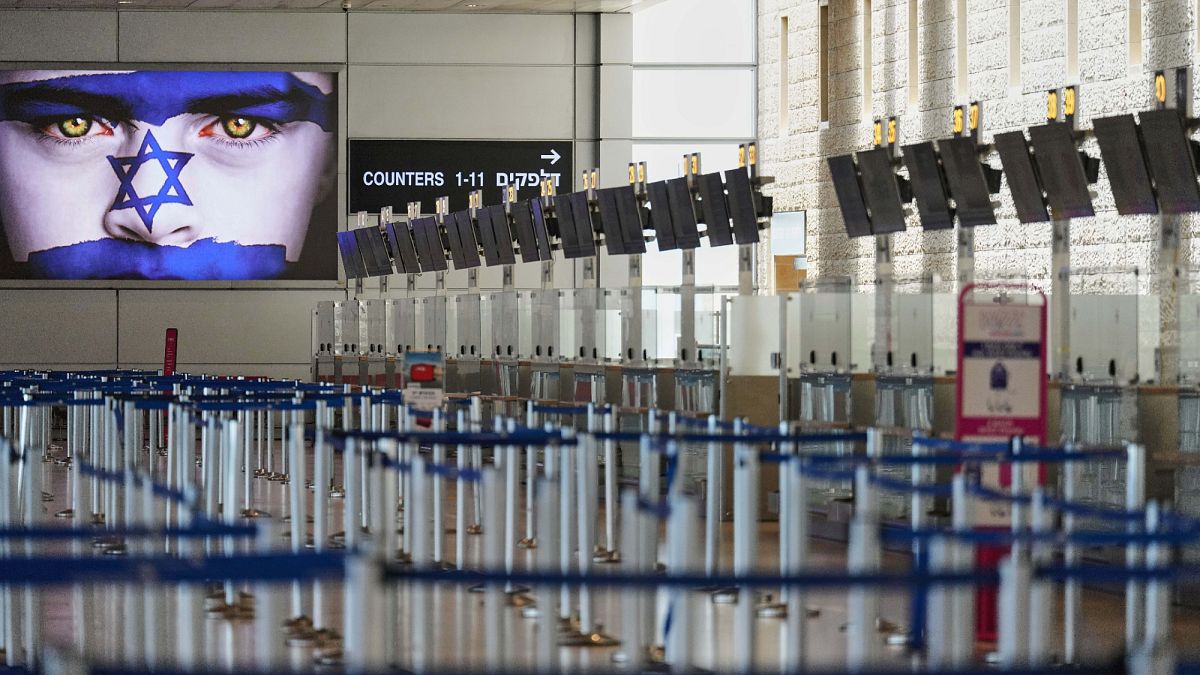Israel’s missile attacks on Iran on 13 June and the subsequent retaliations have thrown air travel in the Middle East into chaos.
Airspace across Iran, Iraq, Israel and Jordan has been subject to closures – some ongoing – and hundreds of flights have been cancelled or rerouted.
Tel Aviv’s Ben Gurion Airport is closed until further notice, and major carriers including Emirates, Lufthansa, Air France, United, and Delta have suspended flights to the region.
If you have a trip planned to affected countries, here’s what you need to know about travel insurance and passenger rights.
You can find full information about airspace closures and cancelled flights here.
What is the latest government advice for travelling to the Middle East?
The UK’s Foreign, Commonwealth & Development Office (FCDO) issued a string of advisories on Friday, 13 June, warning travellers visiting Middle Eastern and North African destinations about rising tensions in the region.
It included popular tourist destinations such as Cyprus, Egypt, Morocco, Tunisia and the United Arab Emirates.
“Ongoing hostilities in the region and between Israel and Iran could escalate quickly and pose security risks for the wider region,” the UK FCDO said.
Warnings were also issued for Saudi Arabia, Iraq, Syria, Yemen, Algeria, Lebanon, Libya, Bahrain, Kuwait, Oman and Qatar. Travellers have been told to “monitor local and international media for the latest information” and “be vigilant and follow the instructions of local authorities”.
On Sunday, the UK FCDO advised against all travel to Israel and the Occupied Palestinian Territories amid ongoing missile attacks.
The FCDO also advises against all travel to Iran, warning that “British and British-Iranian dual nationals are at significant risk of arrest, questioning or detention”.
Foreign ministries in other European countries, including France and Germany, have also issued similar warnings against travel to Israel and Iran.
What are my passenger rights if I have a trip planned to the Middle East?
If you were planning to travel to the region, you do have some options to get your money back or reschedule your flight.
“For anyone who was hoping to travel to the region over the coming weeks and months, as it has been deemed unsafe to travel, it’s likely that airlines will cancel the flight and offer an alternative,” says Ernesto Suarez, CEO of travel insurance provider Gigasure.
This usually means you can choose between travelling on a different flight or receiving a refund.
“However, passengers must be aware that as this is a disruption outside of the airline’s control, they may not be entitled to any compensation,” Suarez adds.
The exception is if you receive less than 14 days’ notice of cancellation, in which case you may be able to claim compensation.
Travellers with adequate travel insurance should have financial protection if all, or part of, their trip is delayed, cancelled, or cut short due to the airstrikes.
“If the customer bought extended travel disruption cover, they should be covered for the abandonment of their trip and/or additional costs if they must move accommodation or extend their stay,” Suarez says. “Customers should check their policy wording for full details.’’
Am I covered by travel insurance if I travel to Iran or Israel?
Foreign offices warn that your travel insurance could be invalidated if you travel against their advice. This means going to areas where they have issued a ‘no-go’ warning or advise against all but essential travel. That currently covers both Iran and Israel.
If you do so, you are likely to be left without coverage for incidents, including medical emergencies and evacuations.
It may also mean that if you are arrested or put in detention, your country’s embassy or officials have limited ability to help you.
If you have booked with a travel agent or tour operator, contact the company directly to understand your options.
My flight was cancelled to Israel. How can I get back?
For travellers stranded overseas and looking for a way to return to Israel, the nation’s flag carrier El Al is reportedly planning one-way ‘recovery flights’ from several destinations.
The airline said in a statement that it is finalising the list of destinations and the number of flights that it can operate.
“Currently, registration is open for customers whose flights to Israel are cancelled since the closure of Israeli airspace and who are currently abroad,” it said.
“Once registration is approved, customers will be contacted via email or text message with updates, including instructions and flight assignments, subject to government approval to operate the flights.”
The carrier added that recovery flights will be operated gradually.
“We recommend preparing for extended stays and keeping receipts for accommodation and related expenses,” it advised. “Eligibility for reimbursement will be reviewed in accordance with legal guidelines.”
EU countries organise evacuations for citizens in Israel
Several European countries have been evacuating their citizens from Israel.
Poland has said it will transport around 200 nationals by bus to Jordan, from where they will fly to Warsaw.
The Czech Foreign Ministry has advised citizens who are interested in repatriation to report to the embassy in Tel Aviv.
According to Czech media, 70 nationals are already travelling to a neighbouring country where they will then catch a flight home.
Lithuania’s National Crisis Management Centre said citizen evacuations by land are scheduled to begin on Tuesday.
Germany has said it will start evacuating its citizens from Israel via Jordan’s capital, Amman, to meet a charter flight planned for Wednesday.
“Germans in Israel who are registered on the Elefand crisis preparedness list have been informed about this option and the details,” a spokesperson said.
Cyprus has received requests to assist in the evacuation of citizens of Portugal and Slovakia, Cypriot Foreign Minister Constantinos Kombos said on Monday.
“There are two active requests,” Kombos said, as reported by Reuters. “Obviously this very much depends on the access of their civilians to neighbouring countries by road.”
The EU has also triggered measures to assist with evacuations.
“We have activated the Civil Protection Mechanism (CPM), and we are assisting member states to evacuate their citizens who wish to leave,” the EU’s top diplomat, Kaja Kallas, said after an emergency meeting of foreign ministers on Tuesday.












